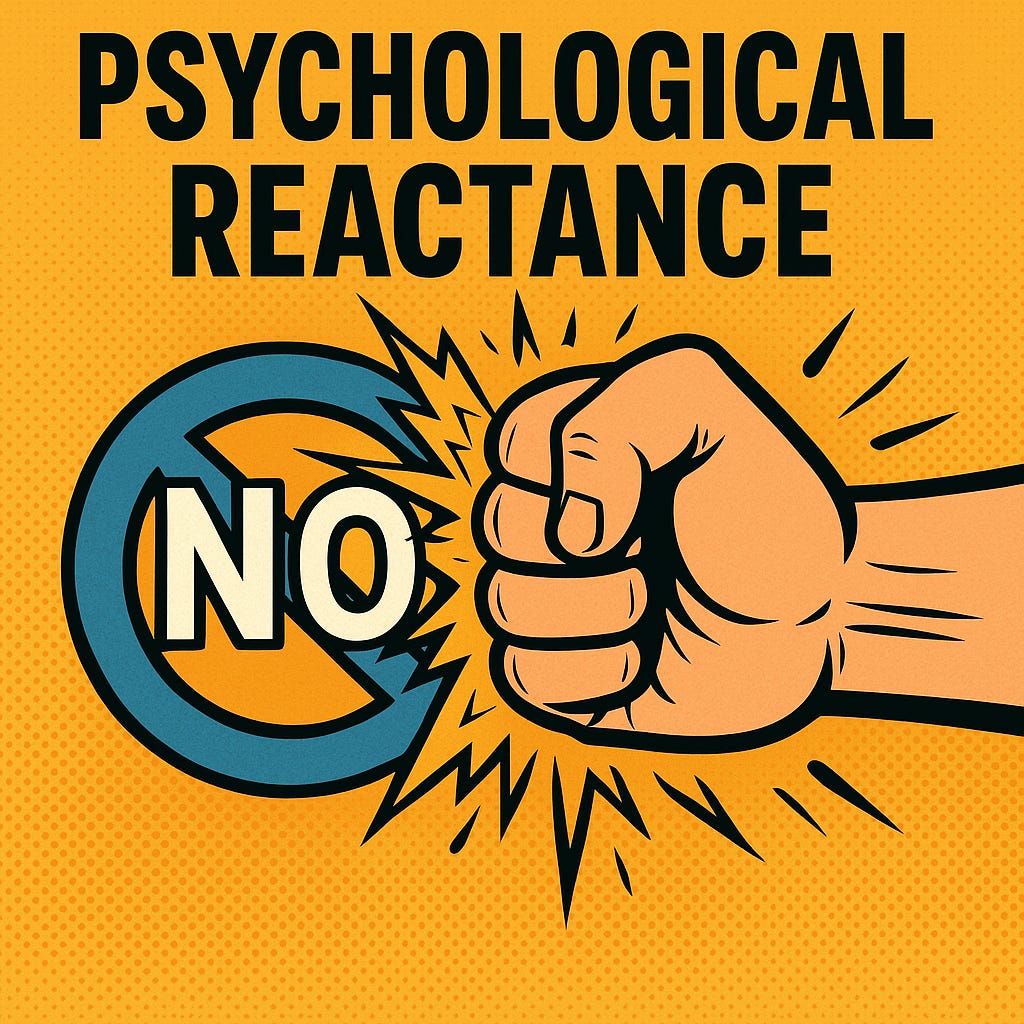psychological reactance theory: this is why you resist change
the most important theory in psychology you've never heard of
psychological reactance and resistance to change
Psychological reactance theory (PRT; originally developed by Jack Brehm in 1966), describes how people resist perceived threats to their personal freedom or autonomy. When you feel your choices are being restricted by someone or something, you experience a motivational state called reactance, compelling you to try regain the threatened freedom.
Reactance theory is arguably one of the most important yet underappreciated theories in psychology because it explains a powerful, universal human response: the instinctive resistance to losing freedom of choice. Despite its profound implications across various fields (in politics, health, marketing, and social influence), it often flies under the radar compared to more well-known theories like cognitive dissonance or groupthink.1
Reactance: why you just will not do what you (know) should do, because someone else said you should do
Reactance maybe the most important psychological concept of the past fifty years that you've never heard of, but you know all about it- because you've felt it too
universal applicability
PRT explains why people resist persuasion, policies, even well-meaning interventions - refusing a vaccine mandate, or rejecting a rule change in sporting organisation, or an item of clothing (because you’re four, and because your parent has chosen it for you); here’s more: smoking bans in indoor workplaces; mandatory seatbelt laws; daytime speed limits on motorways; planned tax increases on cars, alcohol, and meat; mandatory vaccination policies during a disease outbreak; banning cars for commuting to work.
Below the line:
Universal applicability
Outcomes of reactance
Key to understanding psychological resistance
Predictive power
Practical applications
Components of PRT
Applications and interventions
Relevance in politics and social movements
Reactance to system-level policies
Key findings
Implications for policymakers
Theoretical contribution
Strategies to mitigate reactance
Real-world applications
Conclusions
Strategies to reduce resistance
Reading list
Recents
outcomes of reactance
Reactance can result in subjective outcomes such as a heightened desire for the threatened choice or behaviour, or hostility towards the source of the threat. Behaviourally, it might lead individuals to engage in the threatened behaviour (a boomerang effect), take riskier decisions, or focus on specific goals while dismissing others.





